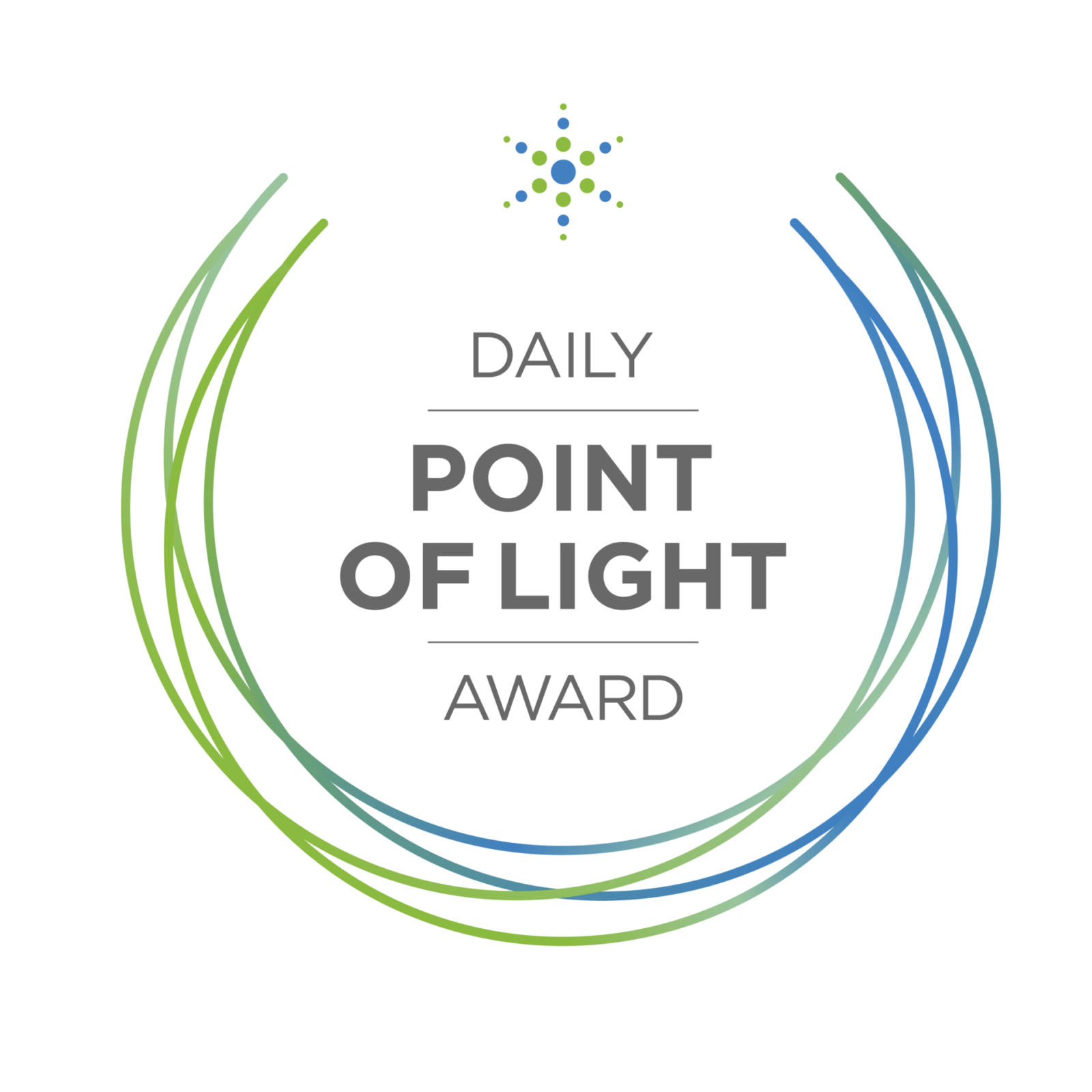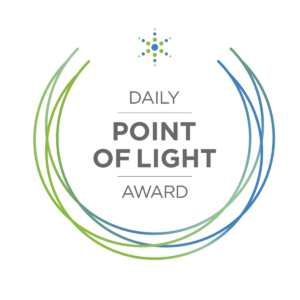Vietnam Veteran Helps Connect Other Vets with Benefits Earned from Their Service


Meet Daily Point of Light Award honoree Richard Nagley. Read his story and nominate an outstanding volunteer or family as a Daily Point of Light.
Content Warning: Points of Light is proud to share the following uplifting and inspiring story. However, we acknowledge that a small portion below may be difficult for some readers. We encourage you to please care for your own wellbeing above all.
It never crossed Richard Nagley’s mind that he would become a full-time volunteer upon his retirement. After all, he worked on the first two Apollo missions at NASA with Homer Hickam, the focus of the movie October Sky before he was called upon to serve in Air Force intelligence during the Vietnam War. In his words, he worked on computers when they “hardly fit in the building”.
After he got out of the military, he moved into the business world at MasterCard, United Airlines, and Levi Strauss. When he started work at IBM, he got an offer from Bill Gates to be the 23rd employee at Microsoft. They still joke about how he turned it down.
Today, after spending time navigating the system for his own health issues related to the service, Richard spends his time engineering the best way for veterans to collect the benefits they earned in the service. He created a nonprofit he called the Veterans Coalition of the San Luis Valley. In a time when there was no organized effort to help servicemembers in those six counties, Richard felt himself called. Today, there are 31 coalitions helping veterans as far as Guam.
What inspires you to volunteer?
It’s not something I thought I’d find myself doing. I started the Veterans Coalition of the San Luis Valley in 2006, because the VA in rural Colorado had a clinic but couldn’t keep a doctor or staff. Veterans needed healthcare help, and I finally took it upon myself–when I needed some help myself–to see what I could do about changing the VA.
Describe your volunteer role with the Veterans’ Coalition.
At the time, there was no one that was helping veterans and no one helping me, so I decided to jump in and figure out what was going on. I began to figure out how the system was dysfunctional, and one thing led to another until I was working with the Secretary of the VA and started the Veterans’ Coalition.
If I leave my cave, I usually find a veteran or a veteran finds me. In Colorado, 10% of the population are veterans, and 99.8% are related to a veteran. That begins a conversation. I then find whether somebody is in need of services I can connect them with. I’ve also been working on policies and a project for the Secretary of the VA.
I’m also on several research boards for the VA nationally. Somewhere between 20 and 22–or more–veterans commit suicide each day. The VA discovered that Colorado was fifth in the nation for veteran suicides, and San Luis Valley has twice their rate. They asked the Coalition if we would take on the Alpha Project, a study on why this is happening. In our own way, we make a difference in people’s lives, one veteran at a time.
What are some of the biggest challenges veterans face when they return home?
The suicide issue is the point of the sphere, but all the comorbidities—drug abuse, homelessness, unemployment, alcohol, physical and mental health issues–drive people to say, “I’ve had enough.” When someone gets out of the military, it’s like leaving home for the first time and going off to college or getting a job. How do you take that job description in the military and equate it into something in real life? We try to help them.
What are some of the biggest ways the average person can help support veterans?
Recognize that veterans pay up front. If the Average Joe on the street thinks about the fact that they’re related to a veteran, he would say, “Thank you.” Asking what you can do for a veteran is great, too. We’re not giving a handout but more of a hand up.
What’s been the most rewarding part of your work?
It’s when a veteran comes in and you start working with them, and they leave crying saying, “No one ever tried to help.” It recharges the battery. I ride a roller coaster every day, and the lows are extremely low. Every once in a while, there’s a really high high, because someone has been told for much of his life either that he was not a veteran or that didn’t qualify for benefits. When we find that he is and he does, he starts getting help and turns his life around.
What have you learned through your experiences as a volunteer?
In my day, others used to say, “Find a job that you would be willing to pay them to let you do.” I didn’t understand what that meant, but now I do. I’ve found that job. I wish I was 40 years younger or even 20 years younger.
The farther from an urban area, the less likely people can do things for free. I just happen to be lucky enough at the moment that I can. Not only can I do it for free, but I am the underwriter and safety net for the organization when it needs help.
What do you want people to learn from your story?
My story is not unique. I can give you lots of stories that I am in awe of. The first major battle of Vietnam was the Battle of Ia Drang Valley. There’s a movie out about it We Were Soldiers with Mel Gibson. Americans were outnumbered somewhere between 10 and 100 to one and survived. This is where helicopters were used for the very first time in the military. We have one of the survivors of that battle living here in the Valley.
One of the things they say at the end of the movie is, “You want to know what to do? There’s always one more thing you can do. And after that, there’s one more thing you can do.” That was the answer, in essence, to how did he and his men survive. People should know that you don’t have to start off big. If you find one little thing that you can do, there will be another thing after that.
Do you want to make a difference in your community like Richard? Find local volunteer opportunities.
If you or someone you know may be considering suicide, contact the National Suicide Prevention Lifeline by dialing 988, or text HOME to 741741 to talk to a trained crisis counselor through Crisis Text Line. Both resources are anonymous, free and available 24/7.
